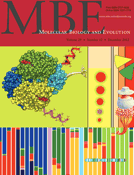
GENETICS AND MOLECULAR RESEARCH
Scope & Guideline
Exploring Genetic Mechanisms for a Brighter Future
Introduction
Aims and Scopes
- Genetic Diversity and Structure Analysis:
The journal emphasizes studies that investigate the genetic diversity and population structure of various organisms, including plants, animals, and microorganisms, using molecular markers and genomic techniques. - Molecular Mechanisms in Disease:
Research related to the molecular mechanisms underlying diseases, including cancer and genetic disorders, is a core focus. This includes studies exploring the roles of specific genes, polymorphisms, and their associations with disease susceptibility. - Biotechnological Applications:
The journal publishes papers on the application of genetic and molecular research in biotechnology, including genetic engineering, crop improvement, and the development of diagnostic tools. - Environmental and Developmental Genetics:
There is a consistent focus on the impact of environmental factors on genetic expression and development, including studies on stress responses in plants and animals. - Evolutionary Genetics:
Research that examines genetic variation in the context of evolutionary biology is also a key area, including phylogenetic studies and genetic epidemiology.
Trending and Emerging
- Genomic Technologies and Applications:
There is a growing emphasis on the application of advanced genomic technologies, such as whole genome sequencing and CRISPR gene editing, to address complex biological questions and improve agricultural practices. - Microbiome Research:
Research focused on the roles and impacts of microbiomes in health and disease is emerging as a significant theme, highlighting the interconnectedness of genetics and microbial communities. - Personalized Medicine and Pharmacogenomics:
The trend towards personalized medicine, particularly pharmacogenomics, is gaining traction, with studies investigating how genetic variations affect drug response and treatment outcomes. - Environmental Genomics:
The influence of environmental factors on genetic expression and adaptation is increasingly being studied, reflecting an interdisciplinary approach that combines genetics with ecology and environmental science. - Molecular Mechanisms of Stress Response:
Research on the molecular mechanisms that govern stress responses in various organisms, particularly under climate change conditions, is becoming more prominent, indicating a focus on resilience and adaptation.
Declining or Waning
- Traditional Breeding Techniques:
There is a noticeable decline in the publication of studies centered around traditional breeding techniques, as the focus shifts towards molecular and genomic approaches for crop and livestock improvement. - Basic Genetic Mapping Studies:
While foundational genetic mapping studies were once prevalent, recent trends suggest a decrease in this type of research in favor of more complex analyses such as genome-wide association studies (GWAS) and next-generation sequencing. - Studies on Non-Specific Disease Associations:
Research that explores non-specific associations between genetic polymorphisms and diseases without robust mechanistic insights appears to be less frequent, as the journal moves towards more targeted and hypothesis-driven studies.
Similar Journals

JOURNAL OF GENETICS
Illuminating Genetic Discoveries for a Global CommunityJOURNAL OF GENETICS, published by the Indian Academy of Sciences, is a pivotal platform for researchers and scholars in the field of genetics. With its long-standing history dating back to 1910, this journal has consistently contributed to the academic discourse through the rigorous publication of original research, reviews, and case studies. Despite its current classification in the Q4 quartile for the 2023 metrics in Genetics, the journal plays a critical role in advancing our understanding of genetic principles, experimental methodologies, and innovations. Spanning a diverse array of topics, the journal aims to foster scholarly exchange and collaboration within the global genetics community. For researchers aiming to publish their work, accessing the journal’s comprehensive archives, which include publications from as early as 1910 to the present day, offers a valuable perspective on the evolution of genetic research. As it continues to adapt to the changing landscape of scientific inquiry, JOURNAL OF GENETICS remains a significant resource for students, professionals, and academics dedicated to exploring the complexities of genetics.

Genetics Research
Driving Progress in Genetic and Medical SciencesGenetics Research, published by HINDAWI LTD, is a distinguished open access journal that has been at the forefront of genetic studies since its inception in 1960. With the transition to open access in 2019, this journal has expanded its accessibility, fostering knowledge dissemination across the global scientific community. Operating out of the United Kingdom, it provides a platform for innovative research in the fields of genetics and molecular biology, encompassing a broad range of topics that are highly relevant to medical sciences. As of 2023, it holds a Q4 classification in Genetics and a Q3 classification in miscellaneous Medicine, reflecting its ongoing commitment to scholarly excellence amidst shifting academic landscapes. While the journal's H-index remains unlisted, its indexed ranking within Scopus, with a rank of #325/328 in the Genetics category highlights the challenges ligated to its niche audience. Nevertheless, it serves as a crucial resource for researchers, professionals, and students eager to contribute to and stay informed on the latest genetic research trends and breakthroughs.

MOLECULAR BIOLOGY AND EVOLUTION
Pioneering Research at the Intersection of Biology and EvolutionMOLECULAR BIOLOGY AND EVOLUTION, published by Oxford University Press, stands as a premier journal in the fields of molecular biology, evolutionary biology, and genetics. With a proud history dating back to its inception in 1983, the journal spans a convergence period through 2024, providing an exceptional platform for disseminating high-quality research. The journal is recognized in the top Q1 quartile across multiple categories, including Ecology, Evolution, Behavior and Systematics, and Genetics, reflecting its significant impact and relevance in these disciplines. With impressive Scopus rankings—10th in Ecology and Evolution, 12th in Genetics, and 22nd in Molecular Biology—it serves as a vital resource for scholars aiming to stay informed on cutting-edge developments in evolutionary processes and molecular genetics. While it currently does not offer open access, its curated contents resonate well with an audience of researchers, professionals, and students deeply interested in accelerating their understanding of the complexities of life through an evolutionary lens.

Frontiers in Genetics
Transforming Genetic Discoveries into SolutionsFrontiers in Genetics is a premier academic journal dedicated to advancing the field of genetics through high-quality, peer-reviewed research. Published by FRONTIERS MEDIA SA in Switzerland since 2010, this Open Access journal provides a platform for researchers and practitioners to disseminate innovative findings across various subfields, including clinical genetics and molecular medicine. With a notable emphasis on interdisciplinary approaches, the journal holds a strong position in the academic landscape, achieving Q2 rankings in key categories such as Genetics and Molecular Medicine in 2023. Not only does Frontiers in Genetics contribute to the scholarly dialogue by publishing impactful studies, but it also promotes accessibility to vital research, ensuring that knowledge is available to a global audience. This journal is a vital resource for researchers, professionals, and students looking to stay at the forefront of genetic discoveries and their applications, reflective of its engagement with contemporary challenges in genetics and healthcare.

Molecular Genetics & Genomic Medicine
Exploring innovations in genetics and healthcare.Molecular Genetics & Genomic Medicine, published by WILEY, is an esteemed and open-access journal that has been a prominent source of knowledge in the fields of genetics and molecular biology since its establishment in 2013. With an ISSN of 2324-9269, it aims to provide a platform for the dissemination of novel findings and innovative research that pushes the boundaries of genomics and its clinical applications. The journal holds a Q3 categorization in Genetics, Clinical Genetics, and Molecular Biology, reflecting its growing influence in these disciplines, as evidenced by its Scopus rankings. Researchers, professionals, and students alike will find valuable insights and advancements in genomic medicine, making this journal an essential resource for those dedicated to the understanding and application of genetic and molecular research in healthcare. Located at 111 River St, Hoboken, NJ, Molecular Genetics & Genomic Medicine continues to foster a global dialogue within the scientific community, ensuring accessible knowledge for all.

ANIMAL GENETICS
Illuminating Genetic Pathways in Animal ResearchANIMAL GENETICS, published by WILEY, is a leading journal in the fields of Animal Science and Zoology, with a commendable Q1 classification for 2023, reflecting its critical role in advancing research and knowledge in animal genetics. Established in 1986, this journal has become a cornerstone for professionals, researchers, and students alike, providing a platform for innovative research that explores the genetic underpinnings of animal biology. With an ISSN of 0268-9146 and an E-ISSN of 1365-2052, it boasts a significant impact in both agricultural and biological sciences, as indicated by its ranking of #74 out of 490 in its category on Scopus, positioning it in the 85th percentile for Animal Science and Zoology. Readers can access high-quality, peer-reviewed articles that not only illuminate current advancements but also foster future research directions. While currently not an open access journal, ANIMAL GENETICS remains vital for anyone engaged in the exploration of genetics and its applications in medicine and beyond, with a continual commitment to publishing findings that shape the future of animal breeding, conservation, and genetics research.

SILVAE GENETICA
Innovating forestry through genetic research.SILVAE GENETICA is a dedicated academic journal in the field of forestry and genetics, published by SCIENDO. Based in Germany, this journal has been a key platform for advancing knowledge in tree genetics and management since its inception. The journal has demonstrated its commitment to quality research with its categorization in the Q3 quartile for Forestry and Q4 for Genetics as of 2023, indicating its relevance and contribution to the respective fields. With an ISSN of 0037-5349 and an E-ISSN of 2509-8934, SILVAE GENETICA covers a diverse range of topics related to the genetic analysis and improvement of forests, employing innovative techniques beneficial for both researchers and practitioners. The journal is indexed within Scopus, ranking #76 in its category for Agricultural and Biological Sciences and #281 for Genetics. While it does not offer Open Access, the importance of the journal's contributions to forestry science and genetic studies cannot be overstated, making it an essential resource for researchers, professionals, and students alike.

Vavilovskii Zhurnal Genetiki i Selektsii
Championing Open Access to Genetic KnowledgeVavilovskii Zhurnal Genetiki i Selektsii, with ISSN 2500-0462 and E-ISSN 2500-3259, is a distinguished open-access journal published by the Russian Academy of Sciences, Institute of Cytology and Genetics. Since transitioning to open access in 2013, the journal has been dedicated to advancing research and discourse in the fields of genetics and selection, particularly within agricultural and biological sciences. With a current ranking of Q2 in Agricultural and Biological Sciences and Q3 in Biochemistry, Genetics and Molecular Biology according to Scopus, it serves as a pivotal platform for researchers, professionals, and students to disseminate their findings and collaborate on innovative ideas. The journal, housed in the vibrant academic environment of Novosibirsk, Russia, publishes a diverse range of articles that contribute to the ongoing evolution of genetic studies and practical applications in agriculture. Its commitment to quality and accessibility ensures it plays an essential role in the global scientific community, fostering knowledge that bridges theoretical research and practical implementation.

Molecular Ecology Resources
Pioneering Discoveries in Molecular Ecology and BeyondMolecular Ecology Resources, published by WILEY, is a leading international journal that specializes in the intersection of molecular biology with ecology and evolution. With an impressive impact factor signified by its Q1 status in multiple categories, including Biotechnology, Ecology, Evolution, Behavior and Systematics, and Genetics for 2023, this journal stands as a reputable source of groundbreaking research within the fields of agricultural and biological sciences. Its Scopus rankings are particularly noteworthy, placing it in the top tier of its respective categories, demonstrating its significance in advancing our understanding of molecular ecology. The journal has been committed to fostering high-quality scientific discourse from 2008 to 2024 and offers open access options to enhance its visibility and accessibility. As a researcher, professional, or student in these dynamic fields, engaging with Molecular Ecology Resources means contributing to and staying informed about the latest innovations and methodologies that shape our understanding of the biological world.

PLoS Genetics
Advancing genetic knowledge for a brighter scientific future.PLoS Genetics, published by the PUBLIC LIBRARY SCIENCE, is a leading open-access journal dedicated to advancing the field of genetics, molecular biology, and related disciplines. With its ISSN of 1553-7404, this esteemed journal has been offering unrestricted access to its content since 2005, fostering a global community of researchers, professionals, and students. Situated in the United States, its contributions can be found at 1160 Battery Street, Ste 100, San Francisco, CA 94111. As of 2023, PLoS Genetics proudly holds a Q1 ranking in multiple categories including Cancer Research, Ecology, Evolution, Behavior and Systematics, Genetics, and Molecular Biology, underscoring its impact in these vital scientific areas. The journal's commitment to disseminating high-quality research is reflected in its impressive Scopus rankings, with notable positions in various fields of study, ensuring that it remains a crucial resource for cutting-edge research and innovation. By providing an open-access platform, PLoS Genetics not only enhances the visibility of genetic research but also encourages collaborations and the sharing of knowledge that can lead to significant breakthroughs in science.